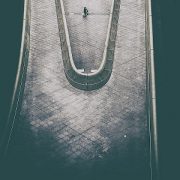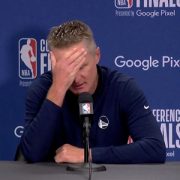
In April 1976, the whole of Beijing went to Tiananmen Square to show their support for Premier Zhou Enlai, who had passed away on January 8. It was a political demonstration in favor of the moderate prime minister, who for the previous decade had tried to hold in check the Gang of Four and also the excesses of Mao Zedong, born in 1893.
At the time, there was a division in the top leadership: There was the Gang of Four, which was in favor of radical communism, and there were the more moderate party members, like Marshall Ye Jianying or Wang Dongxing. Vice Premier Deng Xiaoping, born in 1904, was accused of being the mastermind and organizer of the protest.
Mao cracked down on the rallies, without using the police, but having workers beat the common people mourning for Zhou. Deng was demoted and cast out of Beijing. History seemed set on radicalism.
However, just a few months after the first protest, Mao passed away. About a month later, members of the Gang of Four were arrested, and China was set to move on a different course. In two more years, Deng Xiaoping was back in power. He became China’s top leader and started the radical movement of reform and opening up that would turn the country around.
In 1989, the situation was somewhat similar. Chinese students went to Tiananmen Square to support the ex-party leader Hu Yaobang, who had just passed away, and against then Prime Minister Li Peng, considered a hardliner against the liberal reforms started in 1988 by Party Chief Zhao Ziyang, born in 1919.
Zhao supported and encouraged the students. Li Peng was in favor of harsh suppression. Paramount leader Deng Xiaoping was juggling the two. Meanwhile, Qiao Shi, then head of security, was in favor of a milder approach, forcing the students out of the square but by avoiding any crackdown that could get out of hand. The four paths would lead to four different political outcomes for China.
In this confusion, Zhao was possibly betting on the 1976 precedent. He was 15 years younger than Deng Xiaoping, so he could relatively safely wager that he would survive Deng. Then, no matter what the outcome of the political process, even if the students in the square were to be expelled by force, he could wager that in time China would turn his way. Just as Deng, 11 years younger than Mao, lived to see Mao’s political and physical demise, so would Zhao with Deng.
Still, things went differently after the crackdown. Zhao was adamant in defending his political line, but Deng Xiaoping didn’t die physically or politically.
In fact, in 1992, two years after the crackdown, Deng took it upon himself to relaunch liberalization in China, claiming that he was the flag bearer of Zhao’s reforms, and therefore outshone Zhao, who was under house arrest.
In 1994, Deng’s health started declining, and so apparently did Zhao’s (he died in 2005), just around the time when Deng had a massive stroke that allegedly incapacitated him.
However, despite the fact that in 1976 Deng survived his enemy Mao, and in 1989 Zhao didn’t survive Deng, in both cases the political line defeated in Tiananmen Square later won out. It happened in 1978 with the reform and opening up, and in 1992 again with reform and opening up. In both cases, the party was sure that by adopting reforms it would regain political trust because the demonstrations proved they were supporting one party line against another.
In both cases, the political line supported by the protesters and some in the top leadership was clear, and although it was suppressed publicly, it later returned victorious.
The Covid protests of 2022
The Covid protests in 2022 were different. President Xi Jinping managed to quash all internal dissent in the party. When there were protests in Beijing, the crackdown could move swiftly because there was no internal split over what to do. This proves that Xi’s unitary leadership is effective in moving swiftly in case of sudden risks.
However, politically things are more confused. Both in 1976 and 1989, political splits in the top leadership created the time and opportunity to express a political line that was adopted later. That didn’t happen with the present protests.
Common people and students just claimed they want to go back to having more freedom to move around, which can also mean political freedom—China’s longtime forbidden fruit, since a debate on political democracy has popped up now and then throughout Communist Party history, even before it came to power in 1949.
The debate is currently especially fraught, because first the overlooked outburst of the epidemic in 2019 and now the failing response to the disease, make a poor case for the Chinese authoritarian system. This is particularly significant because the party in 2020 turned its anti-Covid measures into a political show versus democracies, deemed inefficient and anarchic.
Presently, the lack of alternative political voices in the top leadership creates a fissure. After the crackdown, China should solve the political problems underlying the protests. There is now freedom from lockdowns and the constant pressure of the Covid tests, but clearly there is also something more the protesters want—political freedom.
Certainly, in the short term, stopping all lockdowns and quarantines and the recovery of personal freedom will go a long way in assuaging protesters. However, in the medium and longer term, possibly within a couple of years, the pressure for political reforms could grow stronger. It could become difficult to channel these sentiments because there is no political line in the party able to address this request. And there is no leader who embodies radical change. Or if there is, it is secret and it’s not 100% sure people will like it once it is offered.
Moreover, in 1976 and 1989, there were “openly” two lines in the party. Therefore, dropping the hard line and adopting the reformist line, represented by a person, Deng or Zhao, was enough to set the party on a different course. In this way, the party would almost automatically recover credibility and trust from the common people.
However, because in China now there is no alternative political line. Party Chief Jiang Zemin, who died recently, presided over a booming China. But 20 years after his official retirement and in a very different internal or international political situation, a return to his policies is simply impossible. Then it’s not clear what the party should do to recover its credibility.
The party should present to the people a new endeavor, but it is not sure that the people will approve it.
This time it is objectively more complex. There has been a systemic failure to address the largest plague of modern times. The authoritarian system that imposed the lockdowns claimed these lockdowns were actually proof that the Chinese system was better than the “anarchic” Western system. Two and a half years later, this claim has proven clearly false as Western societies and the world went back to normal times, while China is still stuck in a fight against Covid.
Don’t underestimate the party
Still, one should not underestimate the party. By dropping in a matter of hours all restrictions, the party proves pragmatic in its soul. After enforcing impossible zero-Covid policies and having society about to explode, it dropped it all by claiming the Omicron variant of Covid is not serious, i.e. the epidemic has ended hence no need for tests and lockdowns.
It’s not the first time for the party’s sudden U-turns. After the Cultural Revolution, China went from “no market” to a “getting rich is glorious,” extremely Western free-wheeling market. The turn was necessary because the “no market” system was unsustainable. And because China was without any market infrastructure, it went totally “Far West.”
Now perhaps it’s similar. Zero-Covid has simply blown up. There were no preparations (no vaccination campaign, no hospital readiness, and not even enough medical supplies), but still they had to take a U-turn and free everybody and try to restart the economy that otherwise would implode.
The cost of “getting rich is glorious” was a chaotic market where honest and dishonest businesses were blurred and intermingled. Now the cost could well be many deaths that might be hidden away, just like the deaths at the start of the Covid outbreak in 2019 and 2020.
China has a history of “shock therapies,” making changes in harsh and sudden ways. It was right to try to reduce births, after decades of neglectfully overlooking population growth. But the “the one-child policy” was very harsh, and it was kept too long for China’s own good.
In both cases, China will have turned around from an impossible situation.
The political justification is that the human cost can be dealt with later, after Covid is gone and a revamped economy will have helped to heal the wounds.
Still many things are uncertain in the passage. The Cultural Revolution took ten years to turn around, because the party was troubled about it, and there was a collective leadership that had to find a consensus. Now it took about ten days because there is a much more effective leadership, good or bad as it may be.
But at the time of the “one-child policy” the international community was optimistic and hopeful about China’s future, and this helped sustain internal political trust. The same was in 1976 or in 1989, when China was loyally pro US against the USSR.
Now it is very different. Can domestic political trust be recovered in a hostile international environment?
Will China turn its international alignment more in favor of the US to recover its domestic trust? If it doesn’t, what will the consequences be? And what will the consequences be if it does, since many rival countries in the region now have an active interest in pushing China down?
These are big questions sitting on Mr. Xi’s table now, and there could be choppy waters ahead in something that is erratic and unpredictable like the Mediterranean Sea, impossible to control and rein in like the Yellow River[1].
[1] See http://www.settimananews.it/informazione-internazionale/china-odyssey/





